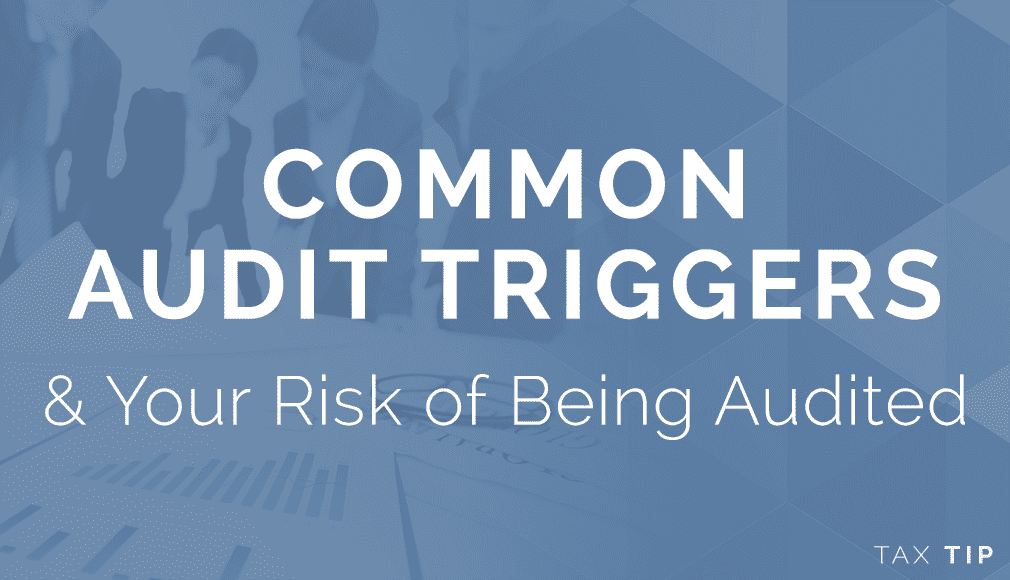

The chance the IRS will target your business for a federal tax audit is usually low. However, if your tax return for your business includes certain red flags, you boost your odds of being audited. Here are five common audit triggers that are likely to grab the attention of the IRS.
If you report a net loss on a Schedule C in more than two out of the last five years, the IRS may consider your business a hobby. If deemed a hobby, you can deduct expenses only up to the amount of your hobby’s total income. Enjoy rebuilding cars? Great. But if you never turn a profit, don’t expect the IRS to consider it more than a hobby.
This is an area that is frequently abused, so IRS auditors tend to examine travel and entertainment costs with greater scrutiny. If you claim expenses for lavish parties, hunting trips to Alaska, or taking your buddies to the ball game, be sure you can thoroughly document a legitimate business purpose.
If you own a business that transacts mostly in cash, such as a convenience store, nail salon, or small restaurant, the IRS will be on the lookout for unreported revenue. No business operates for long without sufficient revenue to cover its expenses. If the IRS suspects that revenue is under-reported, you could face thousands of dollars in taxes, fees, and penalties.
It happens: Sometimes your sales figures actually are big round numbers, but if the math on your business tax return can be computed in your head without benefit of a calculator, IRS auditors may be skeptical about both your numbers and how careful or truthful you were with the rest of your return. Report actual amounts. Don’t average, round up, or fudge.
According to Chris Cicalese, CPA, MSTFP, a fifth trigger that’s seen more frequently is a disparity between different forms and returns, especially when it comes to sales tax.
“If total sales reported on your tax return does not equal the total sales from your sales tax returns filed throughout the year, it may cause the IRS to take a closer look.”
Treat your return like a reconciliation to make sure everything adds up.
Despite these common red flags, your chances of being audited are probably lower than you think. A look at the latest IRS statistics for 2016 reveals some interesting and reassuring facts about the risk of an IRS audit.
Even if they’re becoming less common, an audit can still very well be a reality for your individual or business return. “In the event you receive an audit letter, you should immediately forward it to your CPA,” urges Associate Partner Mike Engleman, CPA. “We are well trained in dealing with tax auditors. Do not handle the audit yourself. You could say something that could open up more areas of your return for audit.”
If your issues add up to be more complicated, you have a greater chance of facing a field audit – which can cause you to owe more money to the IRS. The average field audit recommended the individual pay an additional tax of nearly $19,000, while the average correspondence audit recommended a payment of less than $7,000.
Above all, when it comes to an audit, it is best to maintain appropriate documentation and a pristine paper trail to support any business deduction claimed on your tax return. In fact, today’s technology and apps can help you be more organized in your data and records than ever – just ask your South Jersey CPA and auditing team at Alloy Silverstein. You’ll be glad you did if you ever face an audit.
Contact us for guidance and application to your individual situation →
The information contained in this newsletter is of a general nature and should not be acted upon in your specific situation without further details and/or professional assistance. For more information or for assistance with any of your tax or business concerns, contact our office at 856.667.4100.
Empowering business owners and individuals in South Jersey and Philadelphia to feel confident through proactive accounting and advisory solutions.